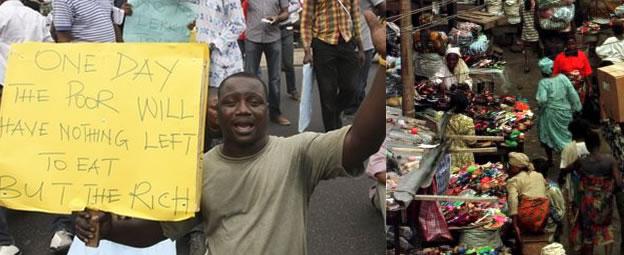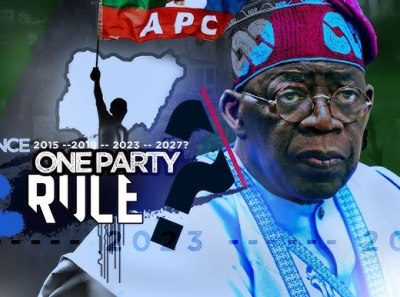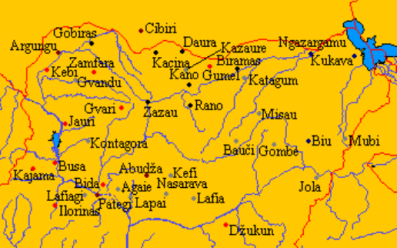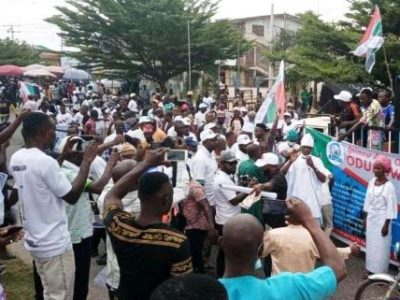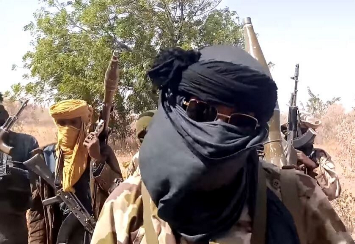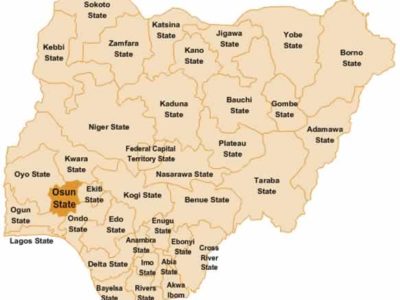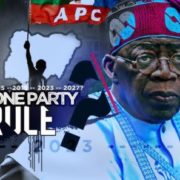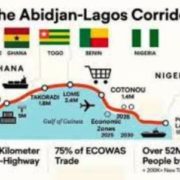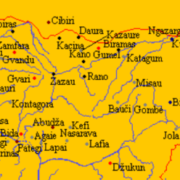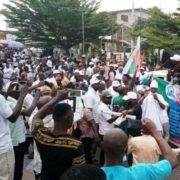By Tim Akano
Addressing the 9 DARK HOLES in which Nigeria has remained enmeshed
RENEWED HOPE is an ATTITUDE, it is not a STRATEGY. What Nigeria urgently needs as she turns three scores and four is a well-thought-out, audacious, and ambitious SMART roadmap that is Specific, Measurable, Achievable, Realistic, and Timely.
This roadmap must frontally address the reasons and factors behind the nine DARK HOLES in which Nigeria has remained enmeshed. ‘‘E lo fokan bale’’ is therefore, not a strategy but an emotional masturbation or a placebo, which can only lead to bigger frustration if the hopes, expectations, and aspirations of May 29th, 2023, remain elusive. Hope deferred brings out the beast in man.
“Infernos’’ and “infernous’’ are both Latin words used to describe a large fire that is dangerously out of control, and a place that suggests hell, especially one filled with great heat or raging fires. For lack of a superior phrase in the English language to appropriately capture the situation in which Nigeria finds herself at 64, let us borrow the Latin phrase, ‘’Flammae Inferorum’’, which means Outbreaks of Fires in Hell!
President Buhari’s Nigeria was like a hell of great heat, hunger, and anger. The hell has now been set on fire, and the fires seem to be spreading widely, dangerously, and destructively. Paradoxically, both President Buhari’s famine of policies and President Tinubu’s rain of policies have pushed Nigeria to an existential crisis.
Under President Buhari, Nigeria became world’s poverty capital
Under President Buhari’s watch around 2018 A.C. (After Change), Nigeria was declared the world’s poverty capital in a report by the Brookings Institution, knocking India off the position. In 2018, according to the report, the number of Nigerians living in extreme poverty increased by 6 people every minute! In 2023, according to the World Poverty Clock, 71 million Nigerians were living below the poverty level, while 133 million Nigerians were classified as multidimensionally poor, according to the National Bureau of Statistics.
What followed was JAPA, an unprecedented EXODUS of both regular and irregular Nigerians. Tens of thousands of professionals in the fields of medicine and education are fleeing from the raging fires in Nigeria to other countries. According to the Nigerian Medical Association (NMA), 55% of qualified Nigerian doctors did not come for license renewal in 2023.
Herbalists, too, are not left out; those who know their onions are involved in JAPA to Brazil, Cuba, and the UK, which probably explains why politicians now have to travel abroad to India, Senegal, Benin Republic, Niger, and Egypt for spiritual check-ups, reinforcement, and fortification! This is a time that tries the human soul, when men’s honor, women’s dignity, professionals’ fidelity, and youths’ vitality are “ON SALE at 100% DISCOUNT.’’ It is no longer the survival of the fittest, but rather, it is survival of the most fit.
On January 1st, 2019, Qatar exited OPEC in pursuit of her national interest. Russia broke her relationship with OPEC+ because President Putin challenged the fraud in OPEC oil production quotas. Angola, Indonesia, Ecuador, and others have all exited the oil cartel.
NNPC was suffering from “VENEZUELA DISEASES’’
That was the CONTEXT on the eve of May 29th, 2023, when President Bola Ahmed Tinubu (PBAT) took over the leadership baton. PBAT inherited a broken State in a comatose state. The country was bedridden with a public debt of almost N80 trillion, consuming over 90% of the nation’s revenue for servicing. Even the World Bank sounded the alarm, warning strongly that Nigeria’s revenue versus debt servicing rate was dangerously approaching parity.
The nation’s cash cow had become “technically insolvent,’’ owing over $6 billion, and the NNPC was suffering from “VENEZUELA DISEASES.’’ In Venezuela, politicians ate all the eggs laid by PDVSA (Petroleum of Venezuela), and foolishly, they ate the hen (PDVSA) that laid the golden eggs! Thus, Venezuela became bankrupt with hyperinflation at 337%. President Tinubu also inherited a Central Bank of Nigeria (CBN) crippled by a mountain of foreign exchange arrears and an “abiku-like’’ macroeconomic environment.
At the Eagle Square, during the swearing-in ceremony, the spirits of the IMF and the World Bank urged him to be a “JAGABAN’’ and not a “DENG.“
President Tinubu, a renowned tax guru, knew he needed fire extinguishers with carbon dioxide (CO2) to vanquish the raging fires. He was torn between listening to Nigerians, who were asking for FOOD NOW, and the IMF, advising him to give them SNAKES NOW! At the Eagle Square, during the swearing-in ceremony, the spirits of the IMF and the World Bank urged him to be a “JAGABAN’’ and not a “DENG.’’ The two are supremely bold leaders, but while the former exhibits Machiavellian tendencies, prioritizing international and elite validation, the latter prioritized the COMMON GOOD for the one billion Chinese, inspired them to take their salvation into their own hands, instead of globe-trotting looking for elusive investment. Deng was inwardly inclined.
On Day One, without consultations, finger-in-the-air, and in the middle of his speech, the JAGABAN in PBAT suddenly triumphed. The President grabbed the first IMF-branded gas fire extinguisher, uncorked it, and exhausted its contents. Behold, the cylinder contained ACETYLENE gas (C2H2), one of the most dangerous flammable gases on earth. His decision to remove the fuel subsidy without contextualizing the implications horizontally and vertically was a mistake that shouldn’t have happened. Spraying Acetylene (C2H2) gas on a raging fire only created more fires.
It was like a hunter shooting first before aiming! As the hurt became wholesale and went mainstream, much like the legacy Family Biscuit called “KARILE’’, people’s purchasing power and happiness index went south, while the cost of living and hunger soared north. Nigerians became dependent on PALLIATIVES, with “ebi npa wa o’’ (we are hungry) becoming the new national anthem!
The scale of poverty and the velocity at which it is spreading
The conversation is not just about the scale of poverty, but also the velocity at which it is spreading. It will be recalled that in 2015, the price per liter of fuel was around N97.00, and PMB left it at N195.00 in 2023, meaning a 100% increase over 8 years. However, in the current dispensation, the price has jumped multiple times from N195 to N1,000.00, a 500% increase in less than 15 months.
Alhaji Aliko Dangote (AAD), while making a case for further increases in fuel prices to N1,800 per liter, submitted that Nigeria’s fuel is 40% cheaper than what obtains in Saudi Arabia, and therefore “not sustainable.”
Sadly, AAD has forgotten what Chinua Achebe wrote in Things Fall Apart: ‘’Those whose kernels were cracked for them by benevolent spirits should not forget to be humble.’’ AAD’s logic is fundamentally flawed on three premises:
(1) Saudi Arabia’s GDP per capita, PPP, is $54,999.00, while Nigeria’s is $2,460.00 (5% of Saudi Arabia’s),
(2) the minimum monthly salary in Saudi Arabia is $800, equivalent to N1,360,000.00, whereas Nigeria’s minimum wage is N70,000, meaning AAD is paying barely 5% of what his counterpart, Alwaleed bin Talai, Saudi Arabia’s richest man, pays his least salary earners in Saudi Arabia,
(3) Saudi Arabia’s GDP is $2.7 trillion, compared to Nigeria’s $253 billion. Nigeria’s economy is barely 10% of Saudi Arabia’s.
The President practically went on his knees for two individuals to get the cement price slashed from N9,000 per bag to N7,000. Now, the government will be on all fours when oil veto power is hijacked by one Nigerian capitalist through errors of omission or commission!
“Floating the naira in an import-dependent, dollar-debt-ridden, cash-strapped nation”
The second IMF-branded fire extinguisher uncorked contained BUTANE gas (C4H10), another highly flammable gas. This was the floating of the naira in an import-dependent, dollar-debt-ridden, cash-strapped nation. There is a direct relationship between the health of a nation’s economy and the strength of her national currency. The floating of the naira rendered the currency impotent. It went down from N700/$1 in May 2023 to about N1,700/$1 in September 2024! Inflation, especially food inflation, rose to over 40%, the bank interest rate on loans jumped to 40%, and 120% from finance houses. The CBN keeps jerking up the MPR, now at 27.25%.
UAE leaders were not stupid when they pegged the UAE dirham to the US dollar at the rate of $1:3.6725 AED since 1997, leveraging their oil wealth to strengthen the dirham. The reason why Foreign Direct Investment (FDI) has remained elusive, despite Mr. President’s globe-trotting, is due to the yo-yo performance of the Naira.
300% electricity tariffs increase – Nigeria’s economic foundation cracked in the middle
The third gas cylinder uncorked by Mr. President contained another highly flammable gas: Hydrogen (H2). This was the increase in electricity tariffs by up to 300%. At that stage, Nigeria’s economic foundation cracked in the middle.
Some of the Western corporations started folding up or significantly scaling down their operations in Nigeria: GSK, P&G, Sanofi-Aventis, Equinox, Microsoft, ShopRite, Jumia Food, Bolt, PZ, Guinness, and Unilever, among others. According to the Manufacturers Association of Nigeria (MAN), the percentage of jobs lost in 2023 increased by 108%, while the percentage of new jobs created decreased by 68% compared to the previous year.
The case of PZ is particularly pathetic. After 100 years of win-win partnership with Nigeria, the company joined in shouting: “ebi npa wa o’’ (we are hungry)! PZ incurred a loss of 76 billion Naira in 2023 due to a 3000% loss incurred on foreign exchange. The de-westernization of Nigeria’s economy is a dangerous trend. Asian companies are no match when it comes to corporate social responsibility!
“Better Life for Politicians and Grade A Elites”
As if those were not enough, Mr. President uncorked the fourth gas cylinder containing Carbon Monoxide (CO), another deadly flammable gas. This cylinder represents the 2024 budget, which can be tagged “Better Life for Politicians and Grade A Elites.”
Whereas the CBN Governor earlier identified medical and educational tourism as the two major clogs in Nigeria’s wheel of progress, with over $40 billion spent on just those two-line items in 10 years, a good budget should have been tailor-made to fix these twin evils.
Unfortunately, the budget focuses on acquiring exotic vehicles, yachts, aircraft, new houses, ridiculous allowances, and irrelevant community projects at scandalous costs. All designed to satisfy the platinum lifestyles and rapacious greed of a few selfish politicians.
School fees in higher institutions: Using CO2 fire extinguisher to combat a bushfire
The fifth gas cylinder contains Ammonia (NH3). it is a colorless, flammable gas that smells like rotten eggs at low concentrations in the air, commonly known as sewer gas. This represents the introduction of school fees in higher institutions. The student loan package designed to ameliorate the situation is like using a 5kg handheld CO2 fire extinguisher to combat a bushfire in the Harmattan!
In one secondary school in the Southwest, I learned that only one new student reported for admission this academic session, in a school that used to boast of an average of 200 new students’ intake yearly. “Is there an ongoing war in the town, or did the COVID-19 pandemic kill all the children of school age in that community?” I asked. “No war, no pandemic. The children are on the streets selling ‘markets,” I was told. “Why?” I asked again. “Their parents are too poor now to raise N9,000 (Nine thousand naira), the average fees charged in village public schools for general administration. Even then, the ones that graduated are jobless, roaming the streets, while most of them are into YAHOO PLUS,” I was told.
I froze.
“Beginning of the End,” I soliloquized.
That was my “Saul to Paul” moment. I came away convinced that Mr. President needs help from every patriotic Nigerian. After exhausting five cylinders of highly flammable gases, “C2H2, C4H10, H2, CO, and NH3,” the health of the nation’s economy keeps deteriorating badly.
Talks of raising VAT to 10% (which I tag Nitrogen Gas—N2) and increasing telecom tariffs (Hydrogen Sulfide) are about to be actualized. Is taxation the only pathway to prosperity? And prosperity for whom? For the masses inside the graves or the ones gravely sick at the departure hall?
Awolowo: PEOPLE must be the center of gravity in any economic policy
I recall in 1982, Chief Obafemi Awolowo spoke up and admonished the then-President Shehu Shagari that the PEOPLE ought to be the center of gravity in any economic policy. Awo’s warning, “the Ship of the Nation is sinking,” turned out to be prophetic, unfortunately. 2024 is beginning to look like 1982!
The fire fighters recruited by President Tinubu fall into four categories. Some are like expired fire extinguishers (20%), some are like empty gas cylinders with nothing inside except hot air (20%), some are themselves dangerous, flammable gases, aggravating the fire (50%), while only 10% are solid fire extinguishers with the correct amount of CO2.
Let us seek the truth from the forest of facts. Which of the top ten IMF patients responsible for 70% of the IMF’s $140 billion outstanding loans do we admire as a nation? Argentina, Ukraine, Colombia, and Ecuador, among others? The IMF clinic is such an appalling place that every country that goes in for consultation or treatment ends up with two new infections, in addition to the underlying sickness! Argentina’s exchange rate jumped to $1:960 ARS, with an inflation rate of 133.5% post-IMF visitation. In Ecuador, the exchange rate crashed to $1:25,000 ECS post-IMF medication, etc.
Meanwhile, most smart oil and gas countries have stable and even stronger currencies than the US dollar: Kuwait Dinar (1 KWD: $3.25), Bahraini Dinar (1 BHD: $2.65), Omani Rial (1 OMR: $2.60), Jordanian Dinar (1 JOD: $1.41), etc. The question is: why is Nigeria’s situation different as a major oil and gas-exporting country with such a crazy exchange rate? Russia’s ruble before the war was $1:76, and today, in the thick of the war, her currency is stable, doing the “BUGA” dance at $1:92, while Nigeria’s currency is doing the “PALONGO” dance, even in peacetime!
Nigeria has no economic problems; our problem is practically and squarely political
Nigeria has no economic problems; our problem is practically and squarely political. Our task in this essay is to examine which economic and political forces are in play locally and globally at the moment and whether they point to a sustainable transformation, and at what speed and cost? Secondly, we must put on our binoculars to see where else money is going in the world and why. Thirdly, we need to know what the new color of money is and how to attract it.
But first things first: the fire fighters recruited by President Tinubu fall into four categories. Some are like expired fire extinguishers (20%), some are like empty gas cylinders with nothing inside except hot air (20%), some are themselves dangerous, flammable gases, aggravating the fire (50%), while only 10% are solid fire extinguishers with the correct amount of CO2. Appointees like the Ministers of Aviation, Interior, FCT, Works, NSA (Nuhu Ribadu), and the CG of Nigeria Customs Services, Bashir Wale Adeniyi, and probably two more are peak performers. Festus Keyamo in Aviation is projecting local airlines like Air Peace in a way no other Aviation Minister has done since 1999. This is how it should be.
Bashir Wale Adeniyi, according to the NSA and Governor Soludo, is doing a yeoman’s job with regards to revenue generation and national security. Wike’s speed and quality of infrastructure transformation in Abuja is commendable. President Tinubu needs to head-hunt excellent fire fighters to strengthen his administration. The cabinet is too socially homogeneous, though ethnically diverse, whereas demographic heterogeneity is the key to innovation and all-around success.
As earlier stated, Nigeria has remained enmeshed inside nine dark holes for the past five decades. However, this piece will only x-ray just one dark hole, for brevity’s sake.
OPEC: THE NO. 1 DARK HOLE!
OPEC is an instrument of economic colonization in the hands of Saudi Arabia. Why would Saudi Arabia, with a population of 36 million, have a daily average oil production output of 10.4m barrels per day, which is 37% of the total daily OPEC output compared to Nigeria with a population of 230m and a production output of only 1.5 mbd, or 5% of the OPEC quota?
On January 1st, 2019, Qatar, a Muslim country and Saudi Arabia’s first cousin, exited OPEC in pursuit of her national interest. Russia broke her relationship with OPEC+ because President Putin challenged the fraud in OPEC oil production quotas. Angola, Indonesia, Ecuador, and others have all exited the oil cartel.
When Iran, Iraq, Kuwait, Saudi Arabia, and Venezuela came together in 1960 to create OPEC, it was a justified reaction to the unfair activities of the oligopolistic practice of the “Seven Sisters” (Shell, Mobile, Chevron, Esso/Standard Oil, Gulf, Texaco, and British Petroleum), who were bent on keeping both the price of oil and the royalty payments as low as possible. It was the era of oil nationalism, especially among the Arab countries who had a beef with the West, but the oil cartel has since outlived its usefulness.
The Seven Sisters have since lost their ‘oily’ oligopolistic hold
The Seven Sisters have since lost their oligopolistic hold on the oil business; we now have 98 countries involved in oil production. Also, when Qatar quit the cartel in 2019, her GDP was $183 billion, but four years later, her GDP rose to $385 billion. Similarly, when Russia exited OPEC+ in 2020, her GDP was $1.5 trillion, and today, despite the ongoing war, Russia’s GDP has risen to $8.0 trillion. Yes! there was a 10% drop in crude oil prices caused by the Saudi Arabia-Russia price war, but it didn’t last long before common sense prevailed. It became clear that an unbridled oil price war is like a nuclear conflict that will ultimately lead to a Mutual Assured Destruction (MAD). Therefore, relying on common sense and market forces is more beneficial to Nigeria than remaining a member of OPEC.
Federal government should encourage fair competition in the local oil refining business by offering similar incentives to other companies, such as BUA and Oando, as are given to the Dangote refinery by the CBN.
The bitter truth is that OPEC is an instrument of economic colonization in the hands of Saudi Arabia. Why would Saudi Arabia, with a population of 36 million, have a daily average oil production output of 10.4 million barrels per day (mbd), which is 37% of the total daily OPEC output of 28 mbd, compared to Nigeria with a population of 230 million and a production output of only 1.5 mbd, or 5% of the OPEC quota? Why are America, China, Russia, and other non-OPEC countries thriving, including Norway, with oil savings in excess of $1.7 trillion, if OPEC is all Juice?
African countries in OPEC have been hypnotized by Saudi Arabia. The six African countries, with 57% of the population of the OPEC 12 countries, control 15% of the oil quota. Meanwhile, the five Arab countries in OPEC, with 36% of the population, control 81% of the oil quota. Where is the fairness, equity, and justice in that? Even if OPEC were to decide quotas based on oil reserves, Venezuela, with the world’s largest proven oil reserves of 300 billion barrels, would be the king of oil, not Saudi Arabia.
Nigeria can begin to sell its oil in Naira
Nigeria can begin to sell its oil in Naira to countries like Ghana, South Africa, the Republic of Benin, India, and China, essentially creating a PETROL NAIRA, thereby strengthening the Naira and possibly making it a convertible currency.
Russia is already selling oil in rubles to India and China, and nothing catastrophic has happened. Even Saudi Arabia is considering dumping the petrodollar in favor of a new currency, which they are expected to announce. Consequently, Nigeria’s currency could become stronger than the dollar once more, at a rate of 1 Naira to $3.00, similar to the Kuwaiti Dinar or the Jordanian Dinar. Nigeria should offer its four moribund refineries to countries like Japan, South Korea, Singapore, or China on lease.
Additionally, the federal government should encourage fair competition in the local oil refining business by offering similar incentives to other companies, such as BUA and Oando, as are given to the Dangote refinery by the CBN. Nigeria should also aim to increase its daily production capacity to 10 mbd from the current 1.5 mbd, with the full participation of American, Japanese, Indian, and European companies in exploration and refining.
Oil, as a store of energy, will become obsolete within 20 to 30 years. Oil is like a 45-year-old single lady still searching for a suitor, her choices are limited. Oil’s best years were in the past; it has no future. This is why Nigeria should remove the shackles and chains of OPEC quickly and, like Qatar and Russia, take her destiny into her own hands and sail into the vast ocean before sunset on oil. Some might argue, “What has Nigeria done with its 1.5 mbd oil quota?” That is a different issue, which requires a different solution.
Conclusion: 64 years of Nationhood and 53 years of Oilhood / OPEChood
In 1960, at Independence, Nigeria bargained with life for a penny and that’s exactly what she got. Now at evening, Nigeria’s store remains embarrassingly scanty, for life is a just employer and rewarder, it gives you exactly what you ask and work for. Any wage we ask of life, life will have willingly paid, the same way Qatar and Norway got paid handsomely outside of OPEC ecosystem.
As we celebrate 64 years of nationhood and 53 years of Oilhood / OPEChood, it’s – time to set a new wage for our nation and bear the task. Aren’t we ashamed of our scanty store after 50 years of oil wealth, the same oil money that built Dubai and Abu Dhabi ?
Nigeria can spearhead the creation of Organisation of Africa Petroleum Exporting Countries (OAPEC), with Headquarters in Port Harcourt. Africa being the last frontier of development needs to begin to assert itself systematically and create her own identity as the custodian of 30% of the world’s leftovers natural resources.
By crossing the T’s and dotting the I’s, there is a formula to raise $500Billion in five years from our left over oil resources, which can be used for two objectives,
(1) build our own NEOM CITY in the Niger Delta as a way of compensating the region for the permanent environmental damage caused by oil exploration;
(2) invest half of that money in top 100 most global corporations like Norway for the benefit of future generations who will not use Oil as a store of energy.
I’m in alliance with one of the greatest global minds, Albert Einstein who submitted that until we have real conflict we don’t fully understand the problem, therefore, one cannot solve a problem with the same mindset that created it
We have to begin to think perpendicularly.
Time for OPECEXIT is now.
Let the conversation begin
Tim Akano, President One Africa Initiatives ([email protected])

